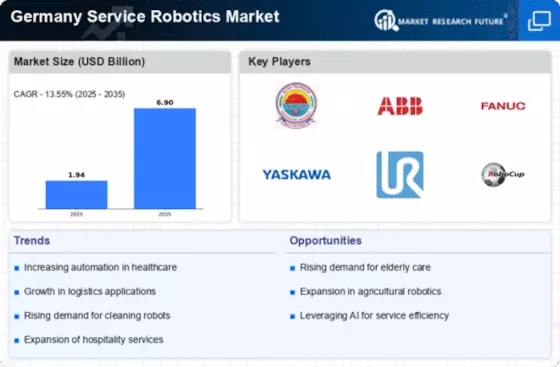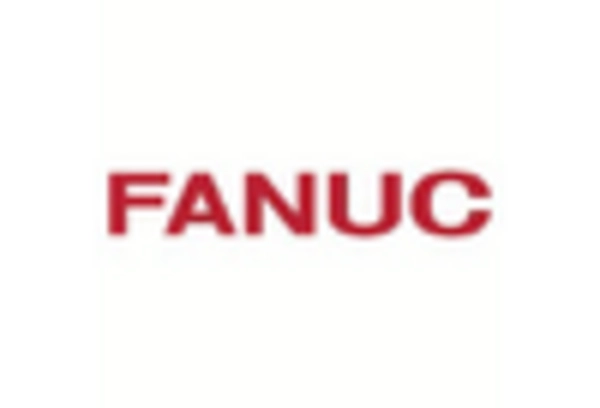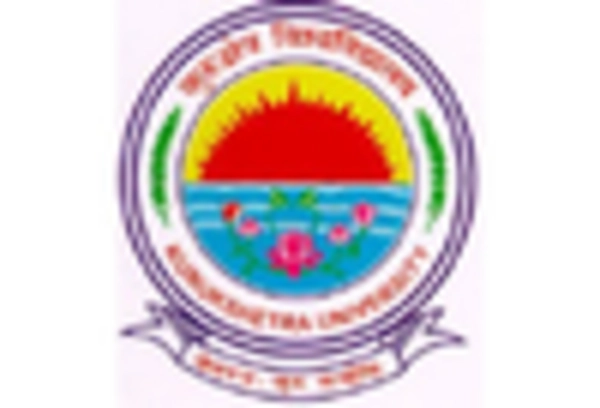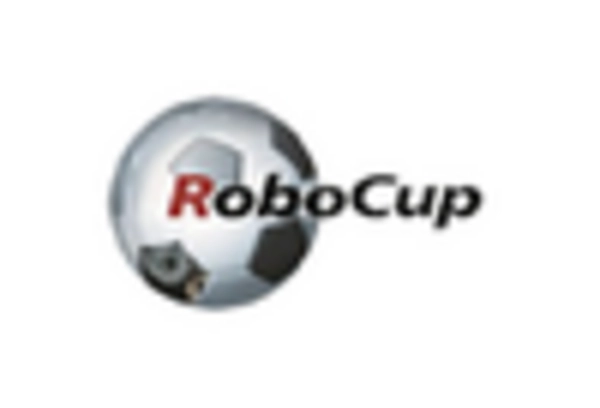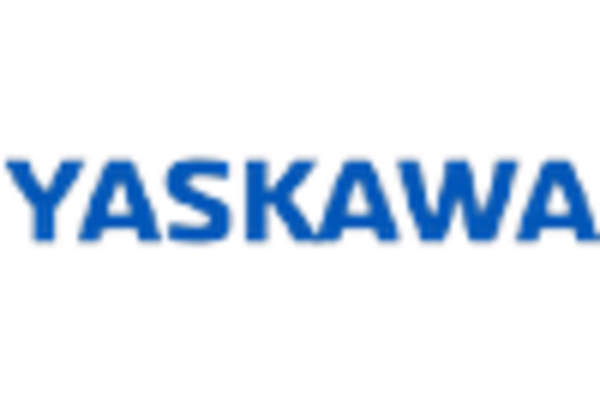Rising Demand for Automation
The demand for automation within the Germany Service Robotics Market is on the rise, driven by the need for increased efficiency and cost reduction across various sectors. Industries such as logistics, manufacturing, and healthcare are increasingly adopting service robots to streamline operations and reduce labor costs. For example, the logistics sector has seen a significant uptick in the use of autonomous mobile robots for inventory management and order fulfillment. As of January 2026, the market for service robots in logistics alone is expected to reach over 1 billion euros, reflecting a growing trend towards automation. This shift not only enhances operational efficiency but also addresses labor shortages in certain sectors, making automation a critical driver of growth in the service robotics market.
Government Initiatives and Funding
The German government plays a crucial role in the growth of the Service Robotics Market through various initiatives and funding programs aimed at promoting robotics research and development. Policies that encourage innovation and investment in robotics technology are fostering a robust ecosystem for service robotics. For instance, the government has allocated substantial funding for projects that focus on the integration of robotics in sectors such as healthcare, agriculture, and logistics. As of January 2026, these initiatives are expected to contribute to a market growth rate of approximately 12% annually. By supporting startups and established companies alike, the government is ensuring that Germany remains at the forefront of service robotics innovation, thereby enhancing the overall market landscape.
Aging Population and Healthcare Needs
Germany's aging population is a pivotal driver for the Service Robotics Market, particularly in the healthcare sector. With a significant portion of the population over the age of 65, there is an increasing demand for healthcare services that can accommodate the needs of elderly individuals. Service robots are being deployed in hospitals and nursing homes to assist with patient care, medication delivery, and rehabilitation. As of January 2026, the market for healthcare service robots in Germany is projected to exceed 500 million euros, reflecting the urgent need for innovative solutions to support an aging demographic. This trend not only addresses the challenges posed by an aging population but also enhances the quality of care provided, positioning service robotics as a vital component of the healthcare system.
Technological Advancements in Robotics
The Germany Service Robotics Market is experiencing a surge in technological advancements, particularly in artificial intelligence and machine learning. These innovations enhance the capabilities of service robots, allowing them to perform complex tasks with greater efficiency. For instance, the integration of AI enables robots to learn from their environments and adapt to various situations, which is crucial in sectors like healthcare and hospitality. As of January 2026, the market is projected to grow at a compound annual growth rate (CAGR) of approximately 15%, driven by these technological improvements. Furthermore, the German government has been actively supporting research and development initiatives, fostering an environment conducive to innovation in robotics. This focus on technology not only boosts productivity but also positions Germany as a leader in the global service robotics landscape.
Increased Focus on Safety and Compliance
Safety and compliance are paramount in the Germany Service Robotics Market, particularly in sectors such as healthcare and manufacturing. As service robots become more prevalent, there is a growing emphasis on ensuring that these technologies adhere to strict safety standards and regulations. The German government has implemented comprehensive guidelines to ensure that service robots operate safely alongside human workers. This focus on safety not only protects workers but also instills confidence in the adoption of robotics across various industries. As of January 2026, compliance with these regulations is expected to drive market growth, as companies seek to integrate service robots while adhering to safety protocols. This trend highlights the importance of balancing innovation with safety, making it a critical driver in the service robotics market.

